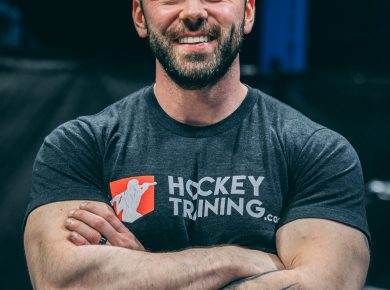If you’re reading my work here on Create Freedom, there’s a GREAT chance you’re an entrepreneur, and if you’re an entrepreneur, there’s a GREAT chance that you have a ton of ideas all the time about what your business could be doing to push more growth.
I am super guilty of “idea overload” at times.
It’s not always a bad thing, coming up with ideas is great because you need to continue to pivot in the market to remain relevant to your customers, but, at the same time just because you had an idea doesn’t mean it’s any good.
Almost all entrepreneurs are wildly creative, whether they give themselves credit for that or not doesn’t matter.
To take the leap into this world requires a ton of creativity surrounding how you’re going to have your voice heard.
But, creativity and tons of ideas can lead to a whole lot of planning and no action.
Or worse, acting upon ideas that weren’t properly thought through and analyzed.
That’s what I want to talk with you about today, you need to “filter” your new ideas through a set of criteria to make sure they are legit (and not just you being a “hustling” entrepreneur).
Due Diligence Is A Real Thing
If you give Kevin and I 30 minutes to sit down and talk shop, we will likely come up with 3-5 good ideas for potential growth right away.
It’s just who we are, we do it every single week at our weekly alignment meetings.
While a number of these ideas are easy to get initially excited about, they need to be discussed and thought about much more before it’s possible to decide to act on it.
However, as each idea spills out of us (it could be a new product, a new YouTube video idea, a new spin on our copywriting, etc.) we continue to learn more about how that idea can grow into something real (or not!).
So, the idea comes to life, but when it is subjected to further conversation it is either discarded or turned into something even better.
In my head I often try and be my own devil’s advocate and try to come up with ways why it’s a bad idea, or, simply critique it and discover was in which it could be improved upon.
Another task I place upon myself is to do my due diligence on every idea that comes our way.
Due diligence is just a fancy way of me saying that I go through a process of trying to uncover information about a potential venture that isn’t obvious at first glance. Much like a professional investor would have to do after hearing a new companies sales pitch (like on Shark Tank or Dragon’s Den).
Creating The Structure
After having so many ideas running through my head all the time, I knew that if I didn’t come up with a standardized way in which I could “inspect” these ideas then there was huge risk that I would forget something that was important.
Because I don’t have the best memory in the world, I created a “tick the box” type of approach to inspecting my ideas to ensure that every idea that came my way was given the same treatment.
What I created wasn’t a substitute for a proper and thorough partnered analysis with Kevin, but, it’s an excellent “first glance over” a new idea that forced me to be a little bit more realistic about the percentage chance of success that it has.
First, I use a lesson Dr. John Berardi taught me once during a Q & A in London, Ontario.
We were at Western University and I asked him how he filters his decisions and he simply said:
Is this REALLY going to work? And, what’s it going to break?
It a nutshell, he talked to me about how sometimes ideas can be exciting… but do you have the resources, manpower, equipment, and most importantly, time to execute it?
Moreover, do you predict market shifts that could potentially render this idea useless in the next few years?
Essentially, the concept is “Sure, this idea sounds cool. But can it actually support my family?”
If the answer is no, then it can be scrapped.
But, if the answer is yes, then you can move on to his second question: What’s it going to break?
What he meant by this is the simple reality that you can’t do everything.
As much as we all want to work hard and hustle to make things happen, if you have too many ideas going at once you will be doing 10 things average rather than 1 or 2 things like a professional.
Average in business doesn’t cut it, you need to shoot for professional every single time.
Trust me, I’m telling you from experience. I have had a million entrepreneurial ventures and it was only when I finally learned to say no to new ideas and focus on only a few did I reach freedom in my life.
What I want you to understand here is that if you spend time on this new thing, is it going to hurt the income coming from the current thing that is putting food on your table?
Moreover, could you simply allocate more time to your “current thing” to make it better instead of doing something new?
In most cases, the answer is yes (you could be spending more time on what you’re already focused on).
So, when an idea comes your way, ensure to give it the Dr. John Berardi special:
Is that actually going to work? And if so, what’s it going to break?
Going Through The Checklist
Once you have answered the above two questions from John, you can move on to the checklist I created for myself to evaluate ideas:
- Is this a good strategic fit for my company and does it represent my core values?
- Thinking from the customer’s point of view, would I spend money on this?
- Do I have competition in this new area? If so, how am I different from the rest?
- What would the profit margins be like on this new venture? (in most cases, you should always be seeking around 60%)
- Is it scalable?
- Does the market even need this product/service?
- Do I have the resources and knowledge to turn this thing into something real?
- What would be the “hook” within the copywriting? (if you know your market, this is something that should jump out at you)
- Can I honestly do this like a real professional?
- If all sounds great, where in my schedule could I allocate effective time to doing this?
Final Thoughts
Today’s article was for all of the people out there who are just like me in that they have more ideas than they have time to work on them.
I went through a several year stage in my career where I thought that all ideas needed to be acted upon and that doing a ton of things was a representation of being “on the grind”.
Although I learned a ton of lessons from all of my failures, I was ultimately wrong.
Being “on the grind” isn’t about doing a ton of different things, it’s all about doing the few things that are most important to you and your vision.
If you want help with this every step of the way (because I can tell you that ideas are cheap until you match them with world-class execution) then check out the Create Freedom Academy today and let’s get started.






